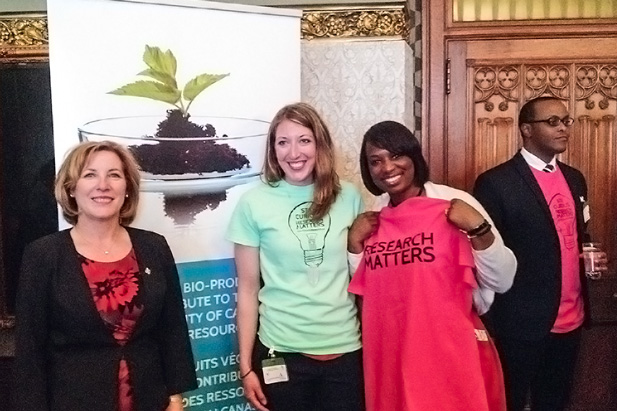UOIT participates in Parliament Hill pop-up research park
Researcher, grad student and industry partner team up in Ottawa showcase
June 24, 2016

There’s an old expression that all politics are local, but sometimes you need to take the local to the politics.
That’s why this spring the Council of Universities (COU) took a different approach to research promoting research. Instead of waiting for politicians to visit researchers in their home communities, the COU sent researchers to Ottawa. The result was a one-day pop-up research park on Parliament Hill.
The University of Ontario Institute of Technology (UOIT) joined the COU initiative, sending Dario Bonetta, PhD, Faculty of Science, to explain how biofuels can improve the sustainability of Canada's natural resources. Dr. Bonetta was joined in Ottawa by Applied Bioscience PhD student Elysabeth Reavell-Roy and industry partner Julian Northey from Frontier Agri-Science.
“It’s always a pleasure to communicate what we find promising and exciting about our research, especially the potential benefits for society,” says Dr. Bonetta, Associate Professor, UOIT Faculty of Science. “Having the opportunity to share our ideas with members of Parliament makes what we do at the university that much more relevant.”
Dr. Bonetta and his colleagues participated in a reception where MPs, political staff and senior government officials engaged with Ontario university researchers, students, and industry/community partners to talk about research that impacts Canadians where they live, work and play.
“It was nice to step back from the work done at the bench and discuss the big picture of our research,” says Elysabeth Reavell-Roy. “Knowing that members of Parliament are also excited about our research is very motivating.”
The COU’s Research Matters campaign is a multi-year venture involving sustained efforts to broaden and deepen the public's understanding – and experience – of why research matters.



